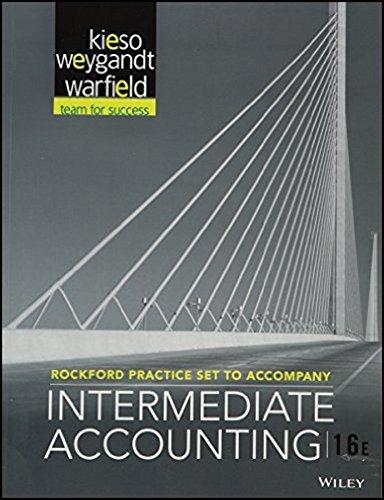Question
WorldCom Corporation began as a small company in the 1980s and, under the direction of CEO and cofounder Bernie Ebbers, it quickly grew to become
WorldCom Corporation began as a small company in the 1980s and, underthe direction of CEO and cofounder Bernie Ebbers, it quickly grew tobecome one of the largest telecommunications companies in the world.Ebbers success resulted in his theory that survival in thetelecommunications industry would come only through company growth andexpansion. Therefore, during the next two decades WorldCom grew throughacquisitions, purchasing more than 60 different firms in the later half of the1990s alone. In 1997 WorldCom acquired MCI in a transaction that cost thecompany roughly $37 billion, and it would have purchased Sprint if it hadnot been prevented by federal antitrust regulations. In less than two decadesWorldCom had grown from a small telephone company to a corporate giant,controlling about half of the U.S. internet traffic and handling at least half ofthe email traffic throughout the world. The value of WorldCom stock
followed the companys growth, eventually reaching more than $60 pershare. However, corporate scandal and falsified financial statements soon ledthe company down the dreaded spiral until, in 2002, it filed for the largestChapter 11 bankruptcy in U.S history. In 1998, WorldCom experienced asudden and unexpected halt in its formerly increasing revenues.WorldComsstock immediately took a hit. As its stock continued to drop, WorldCombecame unable to reach Wall Street expectations, and in a desperate effort tomaintain investor confidence, the company resorted to dishonesty.WorldCom had established a large reserve account, which was initiallymaintained to cover the liabilities of companies it purchased. However, whenrevenues from operations continued to decrease, the company decided to usethese reserve funds to boost its numbers. In total, WorldCom illegallyconverted $3.8 billion of reserve funds into revenues from operations.However, these fictitious revenues were not enough to help WorldCom meetits expected level of revenue. So, in December 2000, CFO Scott Sullivanordered accountants at the companys Texas division to reclassify many ofthe companys expenses. Members of the accounting staff were to reclassify
operating expenses (an income statement account) as capital expenses (a longterm asset account). For example, lease expenses and computer expenseswould become lease assets and computer assets. This reclassification ofexpenses did two things. First, by greatly decreasing operating expenses onits income statement, WorldCom increased its net income. Secondly, byconverting operating expenses into capital assets, the company increased itslong-term asset account. The idea was that a huge increase in both retainedearnings (from an increase in net income) and assets would inevitably lead toan increase in the value of WorldCom and its stock. Overall, nearly $3.85billion of operating expenses were misclassified as capital assets. Otherfraudulent activity dug the companys fraud deeper and deeper until theschemes were eventually detected and investigated by the companys owninternal audit department and the SEC. In the end, it was discovered thatmore than 11 billion dollars had been defrauded from a company that wassoon forced to file the largest Chapter 11 bankruptcy ever recorded. As aresult of the fraud, thousands of employees lost not only their jobs, but alsotheir entire retirement savings. The fraud cost investors billions of dollars asthe company quickly went from a multibillion dollar franchise to bankrupt.Several company executives were indicted on counts of conspiracy and
security fraud. The main perpetrator, Scott Sullivan (CFO), received a sentence requiring him to pay as much as $25 million in fines and serve up to
65 years in prison. Other executives received similar sentences. In essence,the WorldCom fraud left those involved in the company with nearly nothing.It proved a prominent example of the age-old adage. Cheaters neverprosper.
QUESTION:
The Sarbanes-Oxley Act of 2002 has, in many ways, changed the role offinancial statement auditors. In addition to ensuring financial statement accuracy,Investigacion de Fraudeindependent auditors are now required to review a companys internal controlsand report their assessments in the companys annual report. How might thesenew policies help prevent financial statement fraud from occurring?
Step by Step Solution
There are 3 Steps involved in it
Step: 1

Get Instant Access to Expert-Tailored Solutions
See step-by-step solutions with expert insights and AI powered tools for academic success
Step: 2

Step: 3

Ace Your Homework with AI
Get the answers you need in no time with our AI-driven, step-by-step assistance
Get Started


